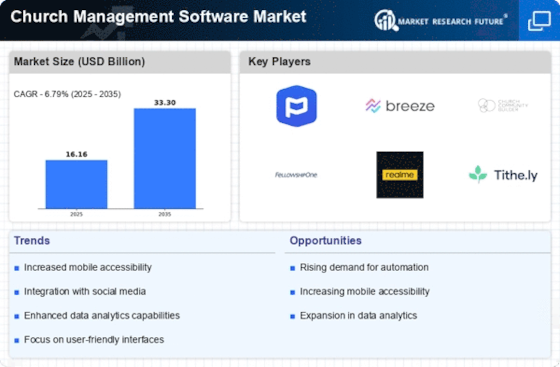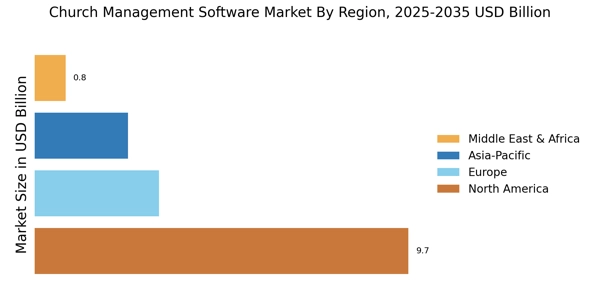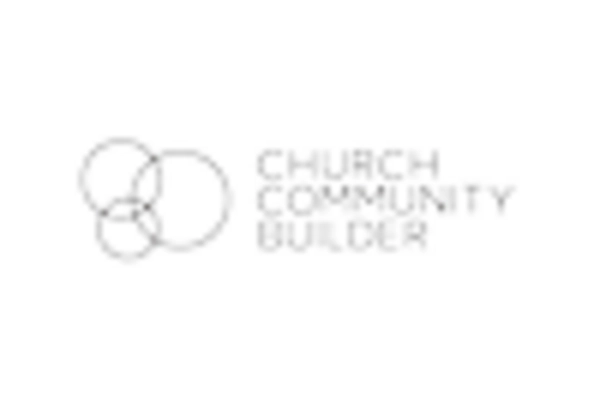Enhanced Member Engagement
In the Church Management Software Market, enhancing member engagement emerges as a critical driver. Software solutions that facilitate communication, event management, and community building are becoming essential for churches aiming to foster stronger connections with their congregants. Data suggests that churches utilizing management software report a 30% increase in member participation in events and activities. This heightened engagement not only strengthens community ties but also encourages financial contributions, thereby supporting the church's mission. As a result, the Church Management Software Market is likely to see continued investment in tools that promote active participation and engagement among members.
Rise of Cloud-Based Solutions
The Church Management Software Market is witnessing a significant shift towards cloud-based solutions. These platforms offer flexibility, scalability, and cost-effectiveness, making them attractive to churches of all sizes. Recent market analysis reveals that cloud-based software accounts for over 50% of new software implementations in the sector. This trend is driven by the need for remote access and collaboration, allowing church staff to manage operations from anywhere. As more organizations transition to cloud solutions, the Church Management Software Market is poised for expansion, with providers focusing on enhancing their cloud offerings to meet evolving demands.
Growing Adoption of Digital Solutions
The Church Management Software Market experiences a notable increase in the adoption of digital solutions among religious organizations. As churches seek to enhance operational efficiency, the demand for software that streamlines administrative tasks, member management, and communication rises. Recent data indicates that approximately 60% of churches have integrated some form of digital management system, reflecting a shift towards modernization. This trend is likely to continue as more congregations recognize the benefits of digital tools in managing their activities and engaging with their communities. The Church Management Software Market is thus positioned for growth as organizations increasingly prioritize technology to meet their needs.
Regulatory Compliance and Data Security
The Church Management Software Market faces increasing pressure regarding regulatory compliance and data security. As churches collect and manage sensitive information, the need for software that ensures compliance with data protection regulations becomes paramount. Recent statistics indicate that nearly 40% of churches have experienced data breaches, underscoring the importance of secure management solutions. Software that offers robust security features and compliance tools is likely to attract more organizations seeking to protect their data and maintain trust with their congregants. Consequently, the Church Management Software Market is expected to grow as churches prioritize secure and compliant management systems.
Increased Focus on Financial Management Tools
In the Church Management Software Market, there is a growing emphasis on financial management tools. Churches are increasingly recognizing the importance of effective financial oversight, budgeting, and reporting. Software that integrates financial management features, such as donation tracking and expense management, is becoming essential for maintaining transparency and accountability. Data indicates that churches utilizing comprehensive financial management software experience a 25% improvement in financial reporting accuracy. This trend suggests that the Church Management Software Market will continue to evolve, with a focus on providing robust financial tools that support the operational needs of religious organizations.


















